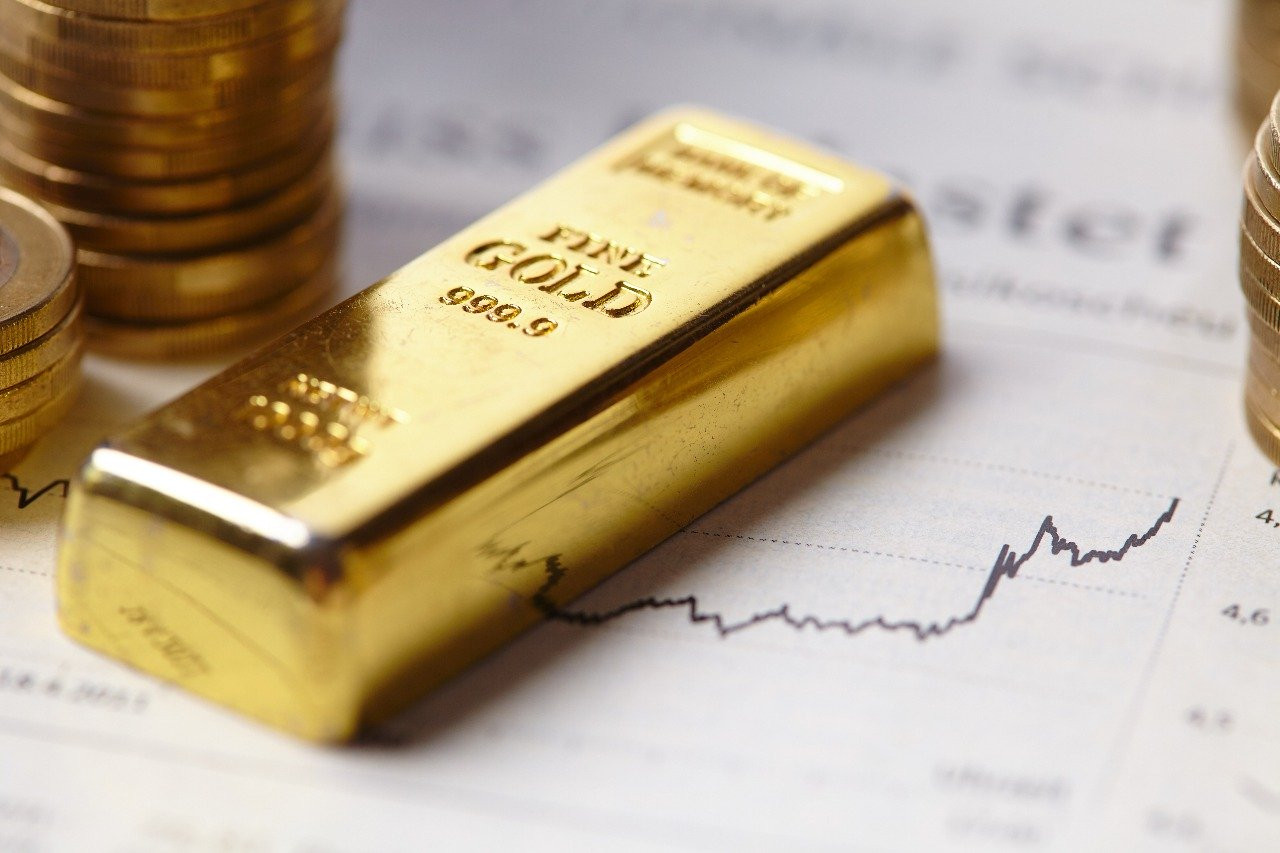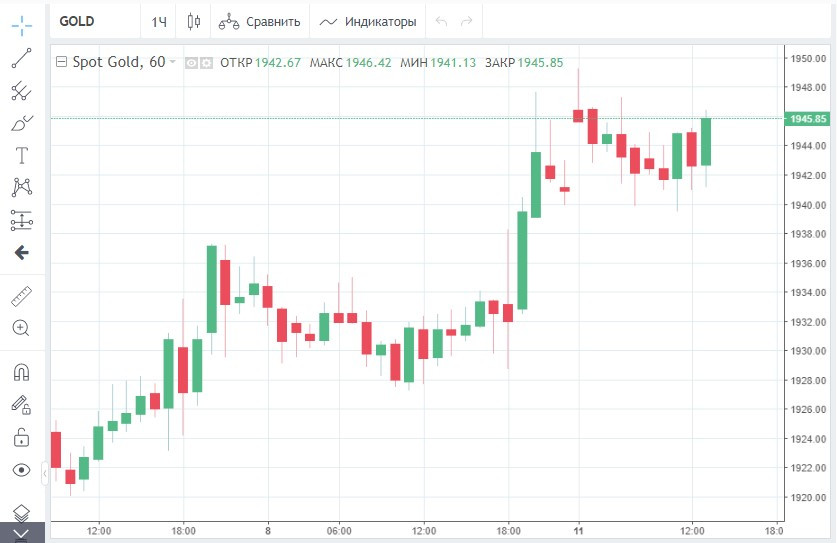
This week, gold prices are likely to be influenced by the US consumer price index for March. Experts predict a jump in inflation. Does it mean that bullion's price will soar?
The precious metal rose by 1.1% last week. On Friday, the asset managed to increase significantly. It rose by 0.4%, or $7.80, to $1,945.60.

Gold prices rose despite the rising US dollar and 10-year US government bond yields. The greenback gained 1.3% last week, and the yield rose to a 3-year peak of 2.7% at the end of the seven-day period.
Fed's hawkish stance contributed to the rise of these readings. Notably, the minutes of the regulator's March meeting were released last week. It showed that many policymakers believe further interest rate hikes of 50 bps are appropriate, especially if inflation remains high or accelerates.
Meanwhile, economists predicted a sharp rise in consumer prices in March. They expect the yearly US inflation rate to rise to a new 40-year high of 8.4%.
The key reason for the acceleration of inflation is the escalation of the conflict between the West and Russia resulting in higher energy prices. Last month, the average gasoline price in the US was $4.19 compared with $3.50 in February.
Economists also point to the sharp rise in food prices amid growing supply chain disruptions.
The US inflation data for March will be released tomorrow. On the one hand, the prospect of higher inflationary pressures supports gold. It is considered a hedging instrument against rising prices, and many investors prefer to protect their capital by buying the asset.
On the other hand, the risk of rising inflation limits the growth of the precious metal. If the US consumer price level meets the economists' depressing forecasts, it may unlock Fed's policy-making options.
It is highly probable that in such a scenario, the US central bank, wishing to curb inflation, will take a more aggressive approach. This will drive up the dollar and government bond yields even more, which will have a negative impact on the value of gold.
However, on the flip side, the bullion may benefit from the Fed's policy tightening if recession fears intensify. That is why investors should pay close attention not only to inflation data this week but also to other economic reports.
On Thursday, US retail sales and jobless claims will be released. And on Friday, the NY Empire State manufacturing activity index will be released.
Experts consider that if economic growth slows down, it is likely to have a negative impact on the US stock market. Most likely, traders' appetite for risky assets will decrease. On the contrary, the demand for safe-haven instruments, such as gold, may grow.
According to analysts, Wall Street will be moving sideways for a long time, and gold is likely to remain stable unless it receives strong upward momentum.
Geopolitics is currently one of the positive drivers for the precious metal. An escalation of the military conflict in Eastern Europe may strengthen gold or increase its price.
Analyst Edward Moya considers $1,970 as the highest possible price for gold this week. Meanwhile, the lowest price may be $1,900.
 English
English 
 Русский
Русский Bahasa Indonesia
Bahasa Indonesia Bahasa Malay
Bahasa Malay ไทย
ไทย Español
Español Deutsch
Deutsch Български
Български Français
Français Tiếng Việt
Tiếng Việt 中文
中文 বাংলা
বাংলা हिन्दी
हिन्दी Čeština
Čeština Українська
Українська Română
Română

